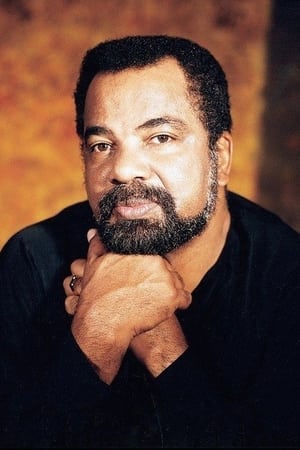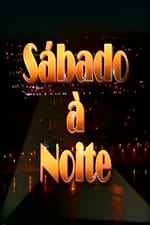Información personal
Conocido por Interpretación
Créditos conocidos 5
Sexo Masculino
Fecha de nacimiento 5 de septiembre de 1942 (81 años)
Lugar de nacimiento Ícolo e Bengo, Angola
También conocido como
- Bonga
Puntuación del contenido
100
¡Sí! ¡Buena pinta!
Iniciar sesión para informar de un problema
Biografía
José Adelino Barceló de Carvalho (born 5 September 1942), better known as Bonga, is an Angolan folk and semba singer-songwriter. He was born in Kipiri in Luanda in 1942.
José Adelino Barceló de Carvalho was born in the province of Bengo, and left Angola when he was 23 years old to become a track and field athlete, becoming the Portuguese record holder for the 400 metres (Angola was at the time one of Portugal's five African colonies). He had already begun his singing career at the age of 15.
Carvalho abandoned athletics in 1972, concentrating solely on his music, and immediately became famous in his native Angola, as well as in Portugal. After the Carnation Revolution in April 1974, he would become a hit both with immigrants from the ex-Portuguese colonies, and Portuguese of both African and European descent. He has released over 30 albums, singing in Portuguese and traditional Angolan languages. His tracks are a mixture of Portuguese folk sounds, semba, kizomba and latin elements.
While Angola was still a Portuguese colony, Bonga was an outspoken supporter of independence. This led him to be exiled from Angola in the early 1970s.
At this time, Portugal was ruled by the authoritarian and conservative Estado Novo regime government, founded by Salazar. Barceló de Carvalho's status as a Portuguese star athlete allowed him the rare freedom of movement, which he used – under the name of Bonga Kuenda – to carry messages between exiled pro-independence African fighters and compatriots still in Angola. When the Portuguese government and its political police (P.I.D.E.) realised Bonga Kuenda and Barceló de Carvalho were the same man, Bonga was forced into exile in Rotterdam, where, in 1972, he definitively adopted the name Bonga and recorded his first record, Angola 72. His iconic track "Mona Ki Ngi Xica", which would feature on the soundtrack of Cédric Klapisch's 1996 film When the Cat's Away (Chacun cherche son chat), was introduced on this album. A warrant for his arrest was issued in Angola for the seditious lyrics of the album, forcing him to move nomadically between Germany, Belgium and France until Angola's independence from Portugal in 1975, brought about by the events of the Carnation Revolution. While in Europe, Bonga met other Portuguese-speaking musicians and adapted the sounds of semba to his already diverse music style. ...
Source: Article "Bonga (musician)" from Wikipedia in English, licensed under CC-BY-SA 3.0.
José Adelino Barceló de Carvalho (born 5 September 1942), better known as Bonga, is an Angolan folk and semba singer-songwriter. He was born in Kipiri in Luanda in 1942.
José Adelino Barceló de Carvalho was born in the province of Bengo, and left Angola when he was 23 years old to become a track and field athlete, becoming the Portuguese record holder for the 400 metres (Angola was at the time one of Portugal's five African colonies). He had already begun his singing career at the age of 15.
Carvalho abandoned athletics in 1972, concentrating solely on his music, and immediately became famous in his native Angola, as well as in Portugal. After the Carnation Revolution in April 1974, he would become a hit both with immigrants from the ex-Portuguese colonies, and Portuguese of both African and European descent. He has released over 30 albums, singing in Portuguese and traditional Angolan languages. His tracks are a mixture of Portuguese folk sounds, semba, kizomba and latin elements.
While Angola was still a Portuguese colony, Bonga was an outspoken supporter of independence. This led him to be exiled from Angola in the early 1970s.
At this time, Portugal was ruled by the authoritarian and conservative Estado Novo regime government, founded by Salazar. Barceló de Carvalho's status as a Portuguese star athlete allowed him the rare freedom of movement, which he used – under the name of Bonga Kuenda – to carry messages between exiled pro-independence African fighters and compatriots still in Angola. When the Portuguese government and its political police (P.I.D.E.) realised Bonga Kuenda and Barceló de Carvalho were the same man, Bonga was forced into exile in Rotterdam, where, in 1972, he definitively adopted the name Bonga and recorded his first record, Angola 72. His iconic track "Mona Ki Ngi Xica", which would feature on the soundtrack of Cédric Klapisch's 1996 film When the Cat's Away (Chacun cherche son chat), was introduced on this album. A warrant for his arrest was issued in Angola for the seditious lyrics of the album, forcing him to move nomadically between Germany, Belgium and France until Angola's independence from Portugal in 1975, brought about by the events of the Carnation Revolution. While in Europe, Bonga met other Portuguese-speaking musicians and adapted the sounds of semba to his already diverse music style. ...
Source: Article "Bonga (musician)" from Wikipedia in English, licensed under CC-BY-SA 3.0.
Conocido por
Interpretación
|
|||
|
|||
|
|||
|
|||
|





